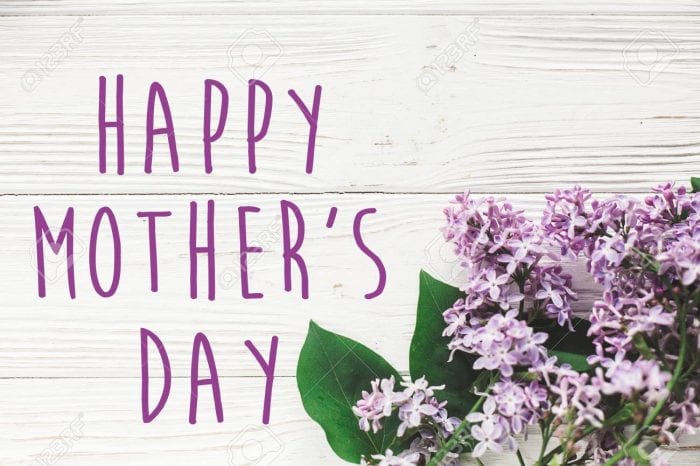Between You and Me: Memories of My Mother and Lilacs
By Leah S. Dunaief

“When Lilacs Last in the Dooryard Bloom’d” is a poem written by the great Walt Whitman as an elegy for the great Abe Lincoln, who died around this time in May of 1865. For me, it too honors my mother, whom I also regard as great, as I guess we all do our mothers, if in a more personal context. I think of my mother whenever lilacs bloom because she loved the flower, with its heart-shaped leaves and its perfume fragrance, and because she died right around Mother’s Day when, to me also in her honor, lilacs bloom.
My mother grew up in the earliest years of the 20th century in Corona, a then-countrified section of Queens in New York City. She told us that on her way to elementary school, she sometimes had to wait for the cows in front of her to finish crossing the road, which is certainly a different picture than what I saw of the neighborhood when I was shown the house in which she and her siblings, parents and maiden aunt lived. (That last is an expression from a century ago.) She also lovingly described the backyard as “completely filled with lilac bushes whose scent filled the entire block.”
My mother was the bridge for her parents and older siblings between the Ukraine, from which they emigrated, speaking not a word of English, and America, the repository of their dreams. She was probably 4 years old when they arrived and moved into the house on Corona Avenue, and she was sent off to school where she learned the language and brought it home, along with the ways of the new country. That she was bright must have been apparent to the teachers because she was skipped grades twice during those early years and graduated from junior high or middle school when she was 11. Although she yearned to go on to high school and college, her father had suffered a debilitating stroke, and she, along with her older brother and sister, were obligated to work and support the family of nine. She won a scholarship to what was then called a “business school,” where she learned in record time to be a credentialed bookkeeper and was hired as such by a man named Mr. Mosler, a member of the well-known family that made Mosler Safes and Vaults.
My mother worked all her life, arranging her work hours somehow around the responsibilities of caring for my father and three children. She was well ahead of her time, of course, as a “businesswoman,” but apparently neither she nor my father thought it odd that she should have a work life outside the home. It was apparent to me at an early age that she was different from the mothers of my friends. She didn’t bake cakes or cookies, was a terrible cook — except during holidays when she focused on preparing delicious meals — didn’t knit and didn’t seem interested in stylish clothes. Indeed, it would have been strange had she been restricted to the home for all her adult life since she was both worldly and had a manner that I would today call “commanding,” despite her short stature. She was occasionally asked if she were a lawyer.
For all of that veneer, my mother was generous, warm and affectionate with all of us, had a great laugh, had a close and supportive relationship with my father, and together they provided a safe and nurturing home in which we were raised.
My mother reaches the level akin to sainthood, in my opinion, because of the way she welcomed and raised my younger sister, who had Down syndrome. Despite the prevailing attitudes then, in 1942 when my sister was born, of stigma and institutionalization, my mother insisted that my sister had a right to a “normal” life within the family and to learn and grow to the fullest extent of her capability.
Again, my mother was way ahead of her time.







